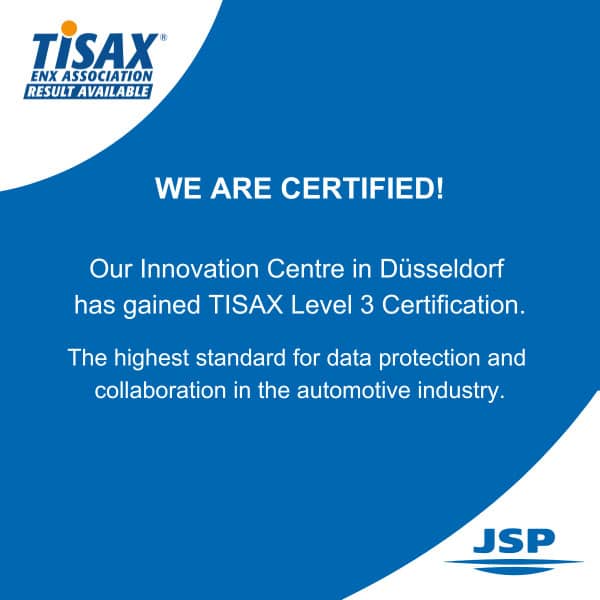
HotSeat – Tim Plunkett, Director at Plunkett Associates
Tim Plunkett established Plunkett Associates in 2005, after identifying a gap in the market for a reliable, impartial and knowledgeable resource through which UK companies could order prototype and low volume production parts. Tim is the next PlastikCity Partner to face the HotSeat…
What trends do you think will shape the future of UK plastics? How will Plunkett Associates respond?
The plastics industry is truly global, the costs and scale required make this a necessity, and yet we are in the middle of a very turbulent period in international trade. There are tariffs popping up monthly, and there is the huge question of leaving the EU and on what terms this will happen, plus increasing tensions on some of the major supply routes. Through all this, we have to navigate a path that allows investment on multi-year payback, provide security, continuity of supply and yet somehow retain a competitive edge! UK businesses certainly have their work cut out for them at the moment.
As for trends I suspect, and hope, that concern for the environment will continue to rise in people’s consciousness, leading to more localised production and a positive resurgence of UK manufacturing.
Automation, I believe, is the answer, and not only for the big multinationals; adoption by the smaller companies is key. Using flexible systems that can be applied to smaller batches than are currently considered feasible is just one route forward that Plunkett Associates are actively involved in and will certainly continue to develop.
How has Plunkett Associates developed during your tenure?
We started as a prototyping company, building on the experience and contacts established since the early 1990s with 3D printing – although it was called Rapid Prototyping back then. Customers tended to be hooked on one process, and we were able to open up the potential of what could truly be achieved. There were several gaps in the market, for example, clear parts and elastomeric parts which we sought to supply.
As prototyping became ever more competitive, we moved into low volume production and used the technologies at our disposal to meet increasing batch sizes. Somewhere around here, we began to consume as many prototypes for ourselves as we supplied into the market.
Today we can support clients from conceptual design, through prototyping and into manufacturing, be that tooling and moulding or something slightly less conventional! Needless to say, the small home office is long gone, and the perpetual battle for space and power (and car parking) is a daily headache!
What do you credit as the key to your success?
Call me old fashioned, but I believe that the customer should always come first! Therefore their requirements become the driving force for the business. We do whatever it takes to get the job done. When a customer commits to us, we commit to the customer, and the most successful projects are built upon solid relationships.
We thrive on the challenges and the variety that comes through the door, both literally and on email! New employees usually comment after a few months that while we had promised variety in an interview, they were stunned to see the scope of what we actually get up to. The company has grown now, its way passed just me, and it’s this ‘can do’ attitude that is the cornerstone of our approach.
Being told I can’t do something is like a red rag to a bull! We push boundaries, we ‘worry’ problems into submission; this is engineering, and it is fun.
What has been the greatest challenge in your career?
Not knowing when to stop. I am a Capricorn, and as such, we are supposedly renown for climbing things. The time I am lost is when I reach a summit; happiness is identifying another summit that is higher!
What advice do you wish you’d had on entering the industry and does that differ from the advice you would give to an Apprentice joining now?
I got into engineering, as I was one of those ‘creators’ who loved building things. Luckily my father was an engineer, so I had access to the tools from an early age. I have always enjoyed my work, but it took a while to realise that this was not the case for everyone. No one told me to expect it, but I would advise anyone now, that if their work does not ‘give them something’ internally, then they should keep looking until they find something that does. We spend enough hours at work in our lives that it needs to be more than a source of income.
Be prepared to ask the ‘stupid’ question, while it might not reveal a solution; it could set in train a discussion that does.
Believe in yourself and your ability. Combined with an ‘everything is possible’ mentality, it will take you far.
What hidden talents do you have?
I can consume vast amounts of coffee, preferably espresso, without any noticeable side effects – including going cold turkey when there’s only instant around!
Otherwise very boring in this respect, sorry! I know what I don’t have, for example, I certainly cannot sing and as a result, run a mile from anything that might resemble karaoke!
Plunkett Associates
+44 (0)1452 386608
Website
Email






